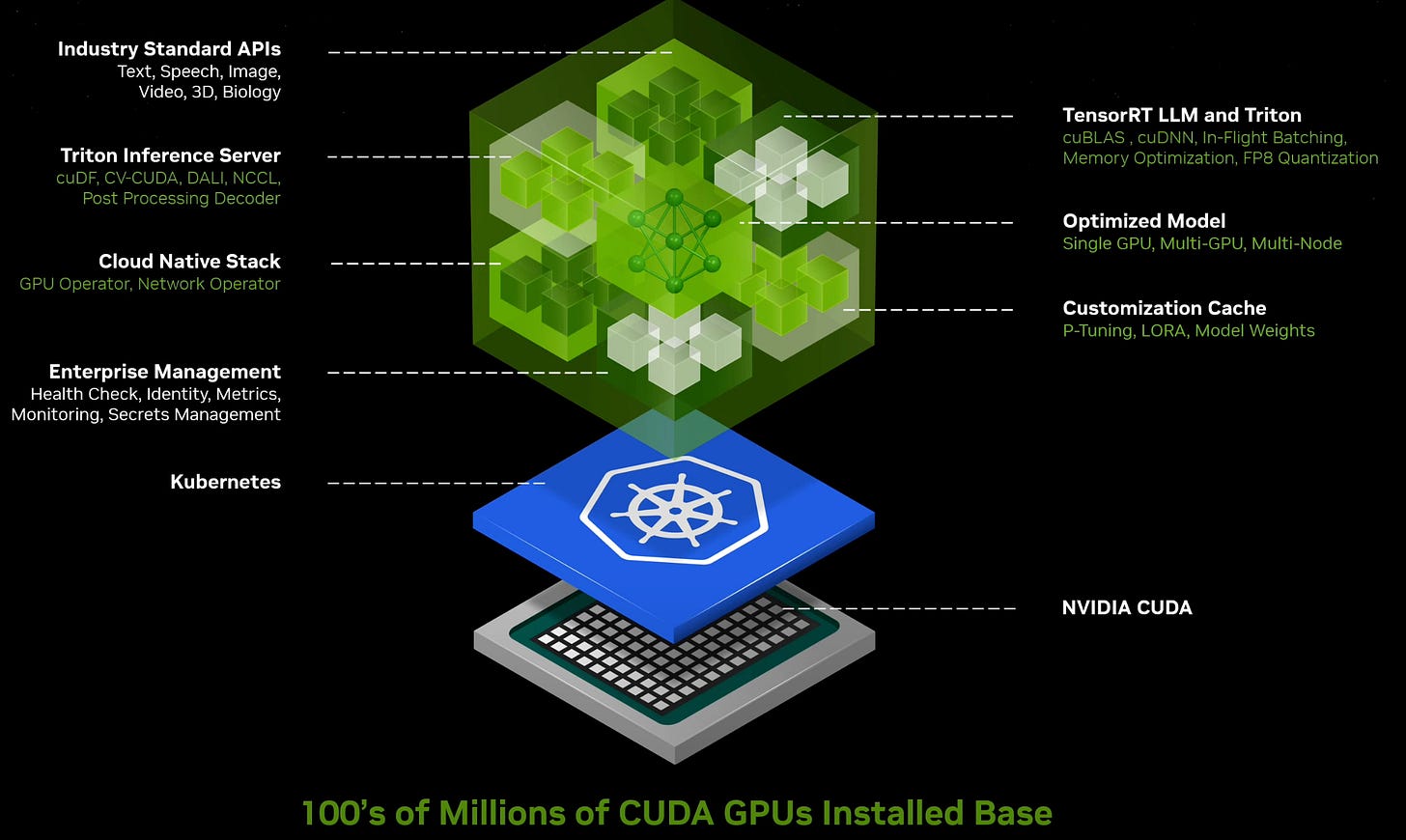486: Nvidia NIMs Explained, Amazon Buying TikTok?, Credentialism, Cybercrime Losses, 64 Days in a Cessna, and Dark Matter
"most of the time I still feel like I’m Calvin!"
O'Brochta's Law: Project management is about applying common sense with uncommon discipline.
⛓️🤔💭⛓️💥 George Mack has a great riff on agency vs the momentum of past choices:
If you’re living in a location simply because you were born there — momentum made the decision. If you moved to the best location in the world for you — agency made the decision.
If your career is because of an ignorant decision by your 18-year-old self — momentum made the decision. If you’re doing the career that you think you can be the best in the world at or you would pay to do — agency made the decision. [...]
A fun way to remove the emotion of momentum is to view reality as a video game:
you’re in a Twitch competition trying to get the highest video game score against 10,000 other players of this video game.
Based on this perspective: Where is the best place in the world for that character to live? What should the character be doing with their time? Who is the best person for them to be dating?
Does that video game design align with your current output? Where is the gap?It’s a neat thought experiment to gain some perspective on your own life, to detach enough to see things that may not be obvious up close.
It’s a bit similar to imagining that whatever you’re trying to decide about in your own life is happening to a friend. What advice would you give them?
It’s usually easier to see what needs to be done with a little distance.
👦🏻🐯🚀 Sometimes I feel like I’m the dad in Calvin and Hobbes…
But thankfully, most of the time I still feel like I’m Calvin!
🛀💭💯 Wouldn’t it be cool if it became common for people to explicitly put numbers on their confidence level for statements and facts?
Either as a way to show confidence in how accurate a claim is, or to show the intensity of a claim (ie. “I would like to see X and Y take place (intensity 9 and 3, respectively)”.
It can be hard to convey nuance with words. In theory, adding numbers shouldn’t force us to think harder about what we’re saying.
I’m in the habit of asking people to give a number or a letter grade when they tell me they liked or disliked something (a film, a book, a restaurant). I find it much clearer to get a “B+” or “D” than “I liked it, it was interesting” or “I didn’t like it, it was a bit strange”.
It’s very hard to put numbers on hypotheses, even just ballpark. But writer and reader are doing a fuzzy version of this implicitly anyway, so we may as well make it explicit, even if it’s still fuzzy. The exercise would probably help us calibrate better over time.
I suspect that if we had to put more precise probabilities on things, it would force us to say “I have no idea” more often.
To be clear, I’m not expecting this to become commonplace.
It’s a lot of added friction to a process that is already difficult (that’s why such a small percentage of the population ever writes anything longer than a page if they aren’t forced to). But I’ll add it to my toolbox and try to use it whenever I feel like it makes what I’m saying clearer (probability that I’ll remember to do this 1 year from now: 35% 😬)
🤕🧠💊 Wouldn’t it be amazing if when we find a cure for Alzheimer’s, it not only stops future memory loss but also reverses existing memory loss and give people their lives back?
(I don’t know enough about the disease’s mechanistic operation to know if it *destroys* existing memories or just *blocks* their retrieval. After doing a bit of research, it seems like it can stop the storage of new memories and prevent the retrieval of existing ones, but it’s unclear if it can also destroy old memories. Maybe it’s linked: the lack of retrieval makes old memories fade, similarly to how if you stop refreshing the data in RAM it disappears)
🏦 💰 Liberty Capital 💳 💴
📦🤖 Nvidia NIMs: AI Microservices in a Box
In Edition #485, I covered Jensen’s GTC 2024 keynote. I didn’t say much about Nvidia Inference Microservices (NIMs), but I was just saving the best for last. 🍰
While Blackwell is the big story *now*, and will be important for a few years as it ramps up, NIMs may be the thing that we look back on in 5-10 years and realize they were a turning point (60% confidence).
But first, what are NIMs?





